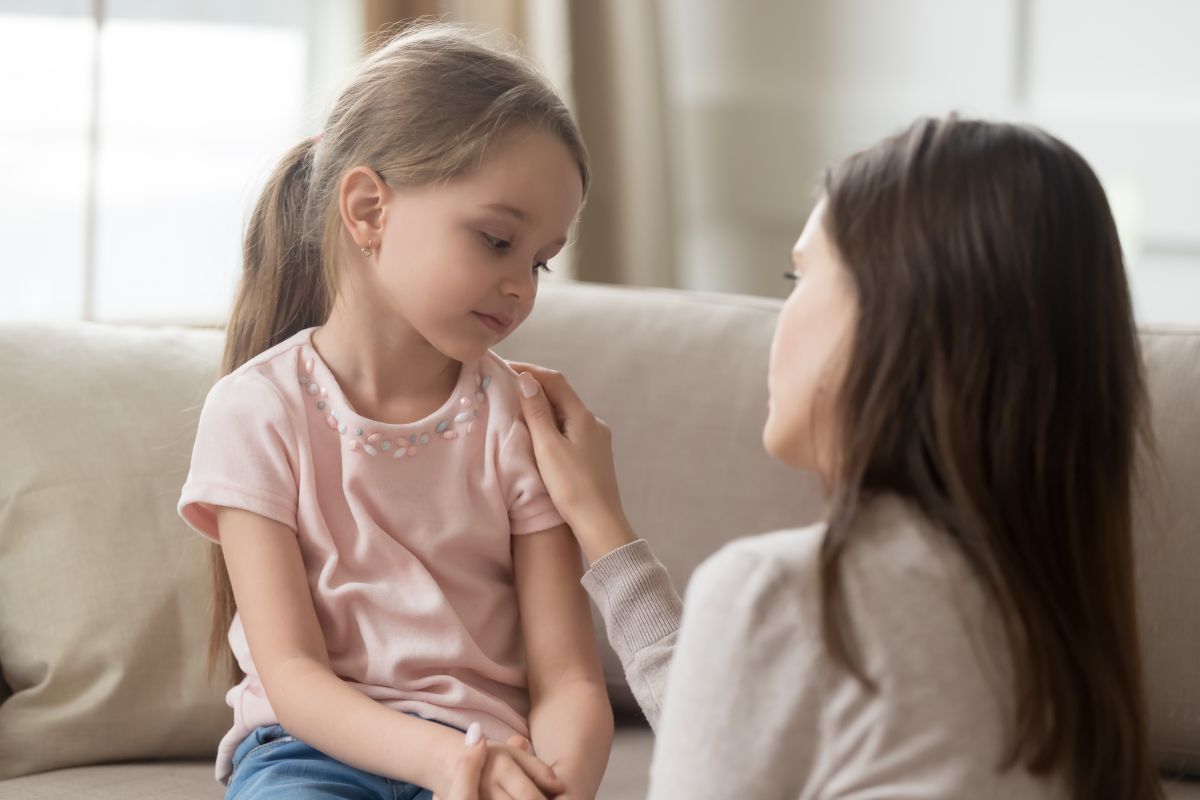Children learn much more than we adults usually believe. Not only because they see images and videos of the war in Ukraine flashing on the screens of smartphones and televisions around them. Or because they listen to conversations. Or because they have had to study shivering at school, with their masks on and the windows open in winter, to avoid catching the coronavirus. In addition, they perceive the worries, fears and tensions of their parents, even if they do not even talk about their feelings.
Ignore crises and leave children’s fears, worries or questions unanswered It is therefore not a good option. “Children want to be protected,” says psychologist Felix Peter. He works in schools with children and young people. And he is a spokesperson for the initiative Psychologists for the Future (Psychologists for Future).
Children need to have the feeling that adults are doing everything possible to ensure that crises end well. And that starts at home, with us talking to our children. But how to do it right?
Take their feelings seriously
Children express their feelings in very different ways. On the one hand, this has to do with his age. When they are even younger, they are often not as good at expressing their feelings in words and tend to have physical symptoms such as stomachaches or headaches, says Katharina van Bronswijk, a psychologist, psychotherapist and spokesperson for Psychologists for Future together with Felix Peter .
A crying child needs comfort first. Then questions like “What are you thinking about?” or “How was your day today?”, can help the little ones to put into words their inner experience.
“But the way we talk to children about crises also depends of the cognitive and emotional development of the child”, specifies van Bronswijk. “As soon as a child asks questions about world events, they must be answered”, says the psychologist.
“It is often said that you have to remove fear from children. But we say, rather, that we have to talk about fears”, explains Felix Peter. According to the psychologist, a phrase like “You don’t have to be afraid” would be equivalent to a prohibition to feel. On the other hand, “I can understand you, it scares me too” is a much better reaction, which makes the child feel taken seriously, adds Katharina van Bronswijk.
Honest adults
Parents should not be afraid of their own fears, nor of showing it to their children. On the contrary: “Children benefit when adults are authentic”, continues van Bronswijk. However, as adults, we are responsible for self-regulating our emotions. Under no circumstances should children be under the impression that they are responsible for making mom and dad feel better, the two psychologists warn. Something that many colleagues and other parenting experts agree on.
Parents should be well informed when talking to their children about war or the climate crisis. It’s okay not to have a super-informed answer ready for every child’s question. Here, too, parents can be honest and do some research before answering the question.
Fears, worries, ignorance: everything is fine. Of course, adults should be clear about their feelings before talking about them with children. Only in this way can the little ones learn something very valuable: emotions of all kinds are allowed and talking about them can help to deal with them.
Crisis communication adapted to children
Perhaps the most difficult question is: How do I talk to my son? What words do I choose? How deep can I go?
Felix Peter’s answer sounds amazingly simple: “The child’s questions determine the level of the conversation”. Adults should be guided by the child’s questions and develop them. “But please, don’t cram them full of information or give them lectures,” advises the psychologist.
It takes time and space to have a conversation like this. Existential crises can hardly be adequately approached at the races. Even kids can understand that it’s not a good time for a long question-and-answer session when parents are on their way to work. Of course: what has been postponed should not be cancelled!
For adults who are not sure how to clarify the war or other complex issues for children, psychologists recommend books or audiovisual materials specially designed for them . In Germany, there is a children’s news broadcast as logo!, from the public broadcaster ZDF. Or Die Sendung mit der Maus (The Mouse Program), a series of comic and technical stories for children, from the also public channel ARD. Other countries and regions, such as Latin America, have their own series and reference programs, such as the internationally known Plaza Sésamo.
“In any case, parents should not let children watch videos of war,” warns van Bronswijk. “It’s hard to bear, even for adults,” he insists.
Be a role model in the crisis
Whether it is the climate crisis, the coronavirus, the violence or the war in Ukraine or in other more or less distant places in the world, many adults also struggle with their helplessness in the face of the multitude of local and global dramas. And for them the following also applies: talking about emotions can be of great help. And they can be used as an incentive to join a political group, raise funds or go to a demonstration.
Parents could also do many of these things with their children and thus strengthen their sense of power react in difficult situations on their own, says van Bronswijk.
By the way, there are also children who are less affected by the crises of this world. In that case, underlines Felix Peter, that’s fine too: “Children don’t have to be as sad as adults. We cannot impose feelings on them”.
You may be interested in:
How quarantines affect language in young childrenHow to know if your child has behavioral or mental health problems
How to combat anxiety, stress, depression, and panic attacks?
